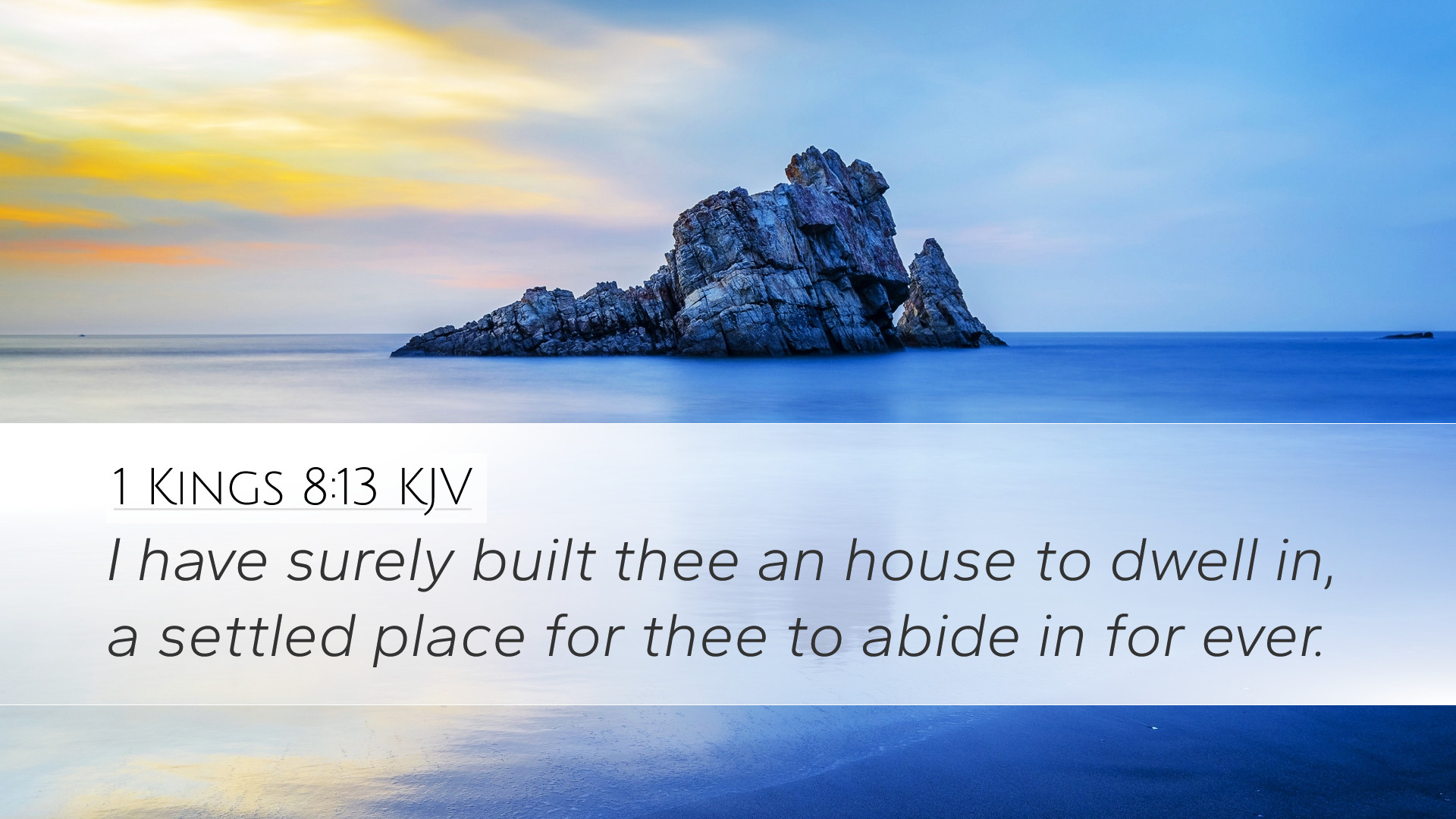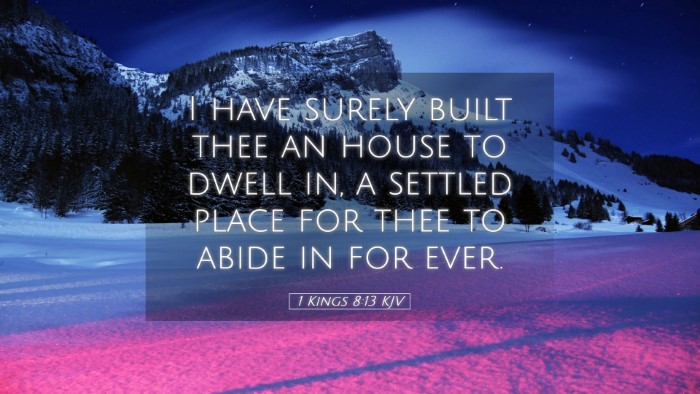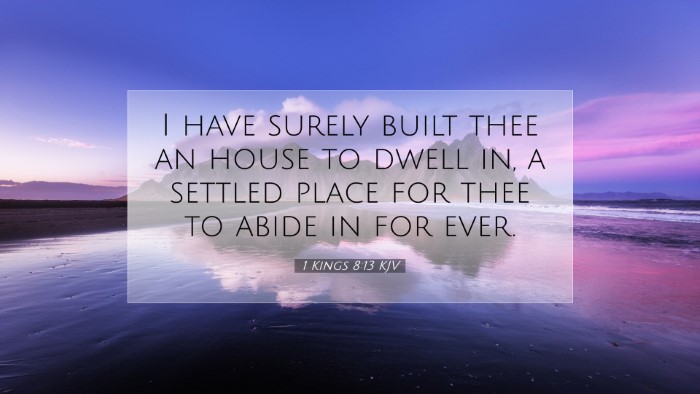Commentary on 1 Kings 8:13
Verse Overview: "I have surely built thee an house to dwell in, a settled place for thee to abide in for ever." (1 Kings 8:13, KJV)
Introduction
The context of 1 Kings 8:13 reveals a monumental occasion—the dedication of the temple built by Solomon. This moment signifies not only the establishment of a physical place of worship but also a profound spiritual significance that reflects God's covenant with His people. In this commentary, insights from recognized public domain commentaries such as those by Matthew Henry, Albert Barnes, and Adam Clarke will be synthesized to provide a comprehensive understanding of this pivotal verse.
Contextual Background
The chapter unfolds during the Feast of Tabernacles, which is a time of joy, celebration, and the acknowledgment of God’s provision. Solomon, having completed the majestic temple, presents it as a dwelling place for the Lord, echoing the heart of the Israelite nation—the desire for God’s presence among them.
Solomon’s Dedication
In the preceding verses, Solomon expresses gratitude and acknowledges God’s faithfulness. He recognizes that while he has constructed a physical house, God cannot be contained within human architecture. As Albert Barnes elaborates, "The heavens, even the highest heaven, cannot contain God; how much less this house that I have built!" (1 Kings 8:27)
Theological Significance
1 Kings 8:13 encapsulates a significant theological theme—the relationship between God and His people through the temple. The temple serves as a tangible representation of God’s presence, a theme woven throughout the Scriptures.
God’s Desire to Dwell Among His People
Matthew Henry highlights the deep yearning of God to dwell among His people, signifying His desire for intimacy and fellowship. The erection of the temple is not merely for ritualistic worship, but to cultivate a relationship with God. This reflects Genesis 3:8, where God walked in the garden, desiring communion with humanity.
Implications for Worship
The construction of the temple signifies the importance of worship—both corporate and personal. Adam Clarke remarks on the necessity of a dedicated space for worship “to bring our hearts and minds into a frame suitable for divine service.”
The Temple as a Symbol
- Perpetual Presence: The phrase “a settled place for thee to abide in forever” speaks to the permanence of God’s presence. It is not a transient relationship but one intended to endure through generations.
- Community Focus: The temple becomes a locus of worship for the Israelite community, uniting them in shared faith and devotion.
- Future Prophetic Significance: As Christian theologians reflect, this foreshadows the ultimate dwelling of God among humanity through Christ, as articulated in John 1:14: “And the Word became flesh and dwelt among us.”
Application in Ministry
This verse offers rich implications for ministry. The desire to build a house for the Lord reflects the heart of every pastor and believer seeking to create spaces for worship, teaching, and community.
Creating Sacred Spaces
Today’s churches, while not temples in the ancient sense, still serve as sacred spaces where believers gather to encounter God. Matthew Henry emphasizes the importance of how we view our church buildings, “They should be regarded as places where we expect to meet with God, and where His ordinances are administered.”
Ongoing Commitment
Albert Barnes notes the importance of maintaining a commitment to the principles of worship and service that the temple represents. Church leaders are called not only to build physical structures but to foster environments of faith and community that reflect God’s glory.
Conclusion
1 Kings 8:13 serves as a powerful declaration of God’s desire to dwell among His people and highlights the importance of worship, community, and ongoing commitment in our relationship with Him. This verse encapsulates both historical significance and contemporary application, reminding us of our call to build spaces—both physical and spiritual—where God’s presence is welcomed and revered.


